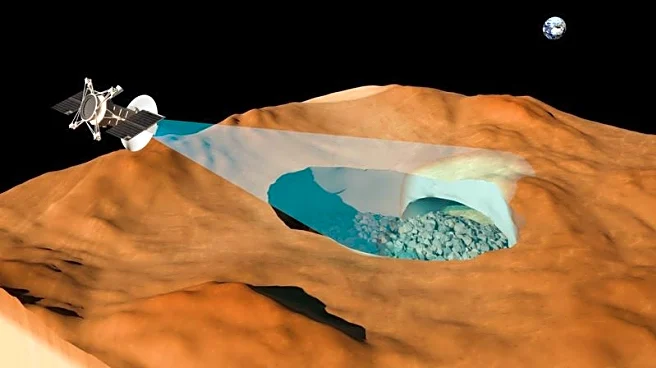Rapid Read • 7 min read
A new theory suggests that gravitational waves, rather than hypothetical particles known as inflatons, may have driven the early expansion of the Universe. The theory, proposed by theoretical astrophysicist Raúl Jiménez and colleagues, posits that gravitational waves could have created density variations in the primordial plasma, leading to the formation of stars, galaxies, and black holes. This approach challenges the traditional model of cosmological inflation, which relies on the existence of inflatons to explain the Universe's rapid expansion after the Big Bang.
AD
This theory is significant as it offers a simpler and potentially verifiable explanation for the early evolution of the Universe, reducing reliance on speculative elements like inflatons. If proven, it could reshape our understanding of cosmology and the fundamental forces that shaped the cosmos. The implications extend to the fields of astrophysics and quantum mechanics, potentially influencing future research directions and theoretical models. It also highlights the importance of gravitational waves in understanding cosmic phenomena.
Further research and observational evidence are needed to validate this theory. Scientists may focus on detecting gravitational waves from the early Universe to support or refute the proposed model. This could involve advancements in gravitational wave detection technology and collaboration among international research teams. The theory's acceptance would depend on its ability to consistently explain observed cosmic phenomena and withstand scientific scrutiny.
The proposal to use gravitational waves as a fundamental explanation for the Universe's early expansion could lead to a paradigm shift in cosmology. It emphasizes the interconnectedness of gravity and quantum mechanics, potentially opening new avenues for exploring the origins of the Universe. This theory also underscores the dynamic nature of scientific inquiry, where established models are continually challenged and refined in light of new evidence and ideas.
AD
More Stories You Might Enjoy












